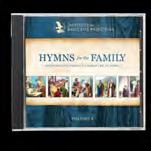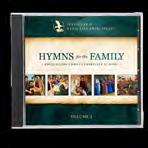Wisdom
Seeing and responding to life’s situations from
God’s
frame of reference
“The
PROVERBS 9:10
THREE GENERATIONS STUDY GOD’S WORD
“But continue thou in the things which thou hast learned and hast been assured of, knowing of whom thou hast learned them; And that from a child thou hast known the holy scriptures, which are able to make thee wise unto salvation through faith which is in Christ Jesus.”
II TIMOTHY 3:14–15
SPIRITUAL GIFT:

BIBLICAL
Illustrated in Scripture, Illustrated in Life


fear of the Lord is the beginning of wisdom: and the knowledge of the holy is understanding.”
CHARACTER ILLUSTRATED CURRICULUM
Exhorter
CONTENTS
2 Introduction
2 How to Use This Curriculum
3 Goals and Objectives
4 Character Quality Overview
5 Wisdom in Scripture
6 Lesson 1: Continue
Learning
7 Bible Story: Three Generations Study God’s Word
8 Memory Verse: Proverbs 18:15
9 Activity: Timothy’s Scroll
10 Lesson 2: Love His Word
11 Bible Story: God’s Word Saves the Nation
12 Memory Verse: Proverbs 9:10
13 Activity: Seeing from a New Perspective
14 Lesson 3:
Apply His Ways
15 Bible Story: The Parable of the Two Builders
16 Memory Verse: James 1:22
17 Activity: Word Search
18 Lesson
4: Keep Company with Wise People
19 Bible Story: Daniel Makes a Request of His Friends
20 Memory Verse: Proverbs 13:20
21 Activity: Circles of Influence
22 Additional Resources
22 Wisdom GEMs






23 Journal and GEM Mine
24 Hymn Sheet Music: “I Want a Principle Within”
25 Hymn History: “I Want a Principle Within” by Charles Wesley
26 Explaining Salvation to a Child
27 Reproducible Coloring Pages
31 Recommended Resources


Biblical Character Illustrated Curriculum
Illustrated in Scripture
“The testimony of the Lord is sure, making wise the simple” (Psalm 19:7b). Biblical character is illustrated in this curriculum through both artwork and lessons from the lives of people in God’s Word. We most often benefit from the positive examples of faithful men and women. “For whatsoever things were written aforetime were written for our learning, that we through patience and comfort of the scriptures might have hope” (Romans 15:4). There were also people in the Bible who are representations of poor character, and we can learn from their lives as well. “Now these things were our examples, to the intent we should not lust after evil things, as they also lusted” (I Corinthians 10:6). We would be wise to learn from the testimonies God has given us in Scripture.
Illustrated in Life
“Faith cometh by hearing, and hearing by the word of God” (Romans 10:17). Hearing the Word of God causes us to grow in faith. This curriculum offers many practical applications of God’s Word to everyday life. “But be ye doers of the word, and not hearers only” (James 1:22). As God enables us to act in faith, our lives as believers will illustrate His character to others.
The character of God is illustrated in Scripture. May it also be illustrated in our lives.
Character Quality Overview


What Is Wisdom?
Read aloud and discuss what wisdom means and how it applies to life.
The operational definition of wisdom is “seeing and responding to life’s situations from God’s frame of reference.” A frame of reference is the way someone thinks about life, which affects how he responds to people and situations. A person tends to think and act based on his culture, experiences, education, and view of God. As you mature, you will find that others have different frames of reference and have information that you do not. For example, if a boy discovers that his bike is missing, he might run into the house, crying that his bike was stolen. However, if his mother tells him that the neighbor is borrowing the bike, he is relieved. Similarly, God’s greater knowledge and perspective can help us to better understand and respond to the situations we encounter. Ultimately, no one but God has full knowledge. To those who ask, He promises to give wisdom that is “pure, then peaceable, gentle, and easy to be intreated, full of mercy and good fruits, without partiality, and without hypocrisy” (James 3:17).
The opposite of wisdom is natural inclinations. Natural inclinations are usually impulsive actions or thoughtless reactions. Without considering God’s perspective, a person does what is “right in his own eyes” (Judges 21:25). He lives carelessly and foolishly, as though God does
not exist. One who is governed by his natural inclinations tends to gratify his desires and disregard rules and correction. He does not care how his actions may affect others. Society reinforces this self-centered attitude through social media, television, movies, and books. In time, a person who follows his impulses will develop sinful patterns of thinking and behavior. James 3:14–16 describes this mindset as “earthly, sensual, devilish,” leading to confusion and evil.
How can someone gain wisdom? God’s Word tells us that “the fear of the Lord is the beginning of wisdom” (Proverbs 9:10). To fear God is to have reverence for and awe of Him. As we read the Bible and pray, we can cultivate our understanding of Who God is. Reverence comes as we realize God is all-powerful, holy, just, and always present. He has the right to rule as Creator and Lord, and one day we will give an account to Him. Fearing God is similar to hosting a guest you greatly admire. If an honorable person came to your home, you would be on your best behavior, carefully avoiding anything that may displease your respected guest. When you fear God, He is your special Guest! As you realize that He is always present, how does that awareness change how you might live, act, and speak?
Like a tunnel offering a narrow view, our human perspective is limited to our own experiences and knowledge. Without God’s wisdom, we readily act according to our natural inclinations.


4
Like a satellite’s view of the earth, God has a greater perspective on life. He can be trusted to give us wisdom to respond well to life’s situations.
Wisdom in Scripture
As you read and study God’s Word, you will see Who He is! Be willing to be changed by Him so Christ can be seen through your life and others will glorify God.
The Character of God

We see examples of wisdom in God’s character in the following ways:
• God created the world by His wisdom.
(See Proverbs 3:19.)
• God is the source of wisdom.
(See Proverbs 2:6, Daniel 2:20–23.)
• Jesus grew in wisdom from a young age.
(See Luke 2:52, Isaiah 11:1–2, 50:4.)

• Jesus was God’s power and wisdom in the flesh, revealed to mankind.
(See I Corinthians 1:24, 30; Matthew 13:54.)
• Jesus has all wisdom and is worthy of praise for eternity.
(See Revelation 7:12, Jude 1:25.)
• The Spirit of God gave Bezaleel and Daniel the wisdom and skill to fulfill His calling to them.
(See Exodus 31:2–4, Daniel 5:11.)
• The Holy Spirit gives believers wisdom and knowledge.
(See I Corinthians 2:12–14, 12:8.)
WISDOM KEY VERSE
“The fear of the Lord is the beginning of wisdom: and the knowledge of the holy is understanding.” PROVERBS 9:10
Wisdom in My Life
Now let’s examine some ways God wants us to live out wisdom daily.
• Why should I wholeheartedly pursue wisdom?
(See Proverbs 4:7, 8:11.)
• What can I do when I don’t know what to do?
(See James 1:5–6, Proverbs 1:5.)
• How may I bring joy to my parents?
(See Proverbs 10:1, 23:24–25.)
• What four little creatures can teach me to be wise?
(See Proverbs 30:24–28.)
• What results from wise actions and words?
(See Proverbs 14:1, Daniel 12:3.)
• Why is a poor yet wise child better than a foolish king?
(See Ecclesiastes 4:13, Proverbs 15:5, 31–32.)
• What makes a great nation?
(See Deuteronomy 4:5–6, Proverbs 14:34.)
5
Continue Learning

Throughout life you will face new situations, problems, and decisions. New experiences and information will expand your perspective. These circumstances become opportunities to learn. For example, you could watch your dad fix the car, see how food grows in a garden, or discover how a machine works. When you approach life with a humble, teachable attitude, you will gain wisdom. You can also ask wise people to share from their experiences. You can learn from God’s Word how to respond to the various events in life. His Word tells you how to work, treat others, overcome sin, and receive correction. Welcome each situation as an opportunity to exercise wisdom by applying God’s ways. “Give instruction to a wise man, and he will be yet wiser: teach a just man, and he will increase in learning” (Proverbs 9:9).
WISDOM
Seeing and responding to life’s situations from God’s frame of reference



6
GOD ENABLES ME TO
INTRODUCTION
Three Generations Study God’s Word
BIBLE STORY
Three Generations Study God’s Word
During the Apostle Paul’s first missionary journey, he visited the city of Lystra. As the Gospel spread in Lystra, many trusted in Christ, including a youth named Timothy; his Jewish mother, Eunice; and his grandmother, Lois. Before hearing the Gospel, Timothy’s mother and grandmother had faithfully brought him up in their Jewish faith. Now they knew their true Messiah, Jesus, and continued to grow in the Lord. When Paul returned to Lystra, the other believers spoke highly of Timothy. Welcoming Timothy as his son in the faith, Paul invited the young man to travel with him. Timothy learned much from Paul, who discipled him. As time passed and Timothy grew spiritually, Paul believed the young man was
ready to lead the church in Ephesus. During Paul’s travels, he wrote a letter to Timothy, warning him of false teachers and instructing him regarding pastoral responsibilities. Four years passed while Paul continued to evangelize. One day, from a cold, dirty prison, he wrote a second letter to Timothy. Aware that the end of his life was near, the aged apostle was eager to see his disciple one more time. What wisdom would Paul impart to Timothy? Why would it be vital for Timothy to continue studying and learning from God’s Word?
Let’s read the Bible story in I Timothy 2:1–4, 4:12–16 and II Timothy 1:1–5, 13–14; 2:1–4, 22–26; 3:12–17 and then discuss the following questions.
1. What words of wisdom did Paul give to young Timothy? (See I Timothy 4:12.)
How can you be a good example?
2. What did Paul encourage Timothy to do? (See I Timothy 2:1–4, 4:13–16.)
Why should you pray for others? How often is it wise to meditate on Scripture? (See Joshua 1:8.)
3. How did Paul set a good example and invest in Timothy’s life? (See II Timothy 1:2–3.) How many generations in Timothy’s family followed Christ at that time? (See II Timothy 1:5.)
What examples of good character have you seen in your elders? What qualities would you be wise to develop in your own life?
4. What did Paul urge Timothy to hold fast (keep)?
(See II Timothy 1:13–14.)
What is the wise response to Godly counsel and instruction? (See Proverbs 4:13, 19:20.) How might your parents respond when you demonstrate wisdom? (See Proverbs 23:24–25.)
5. What was Timothy to do with what he had been taught? (See II Timothy 2:2.)

With whom can you share Biblical truth that you have learned?
6. What did Paul instruct Timothy to do to avoid shame and ungodliness? (See II Timothy 2:15–16.)

When do you study God’s Word? What has God taught you recently?
7. How was Timothy encouraged to behave? (See II Timothy 2:22–23.) Rather than argue, what was the appropriate response to those who resisted truth? (See II Timothy 2:24–26.)
Is arguing wise? What is a wise response toward those who appear to be Godly but speak or act unrighteously? (See II Timothy 3:1–5.)
8. If Timothy continued to learn and apply Scripture, what would be the result? (See II Timothy 3:16–17.)
What Biblical truths have you learned from your parents and teachers? How can you wisely respond to reproof and correction? (See Proverbs 9:8, 15:31–32.)
7
LESSON 1 Continue Learning
Revealing the character of Christ through the stories in His Word.
SAVE 20% on any individual Biblical Character Illustrated booklets

Use coupon: BCICBOOKLET


Biblical Character Illustrated Curriculum
Discover this unique tool that uses the stories in Scripture to illuminate character qualities God wants to develop in the lives of His people. This curriculum contains multiple ways to teach character to kids and give them a vision for building character through faith in Christ!

Single Booklets: $10 each
Complete Set: $379 (SAVE 23%)
OTHER BIBLICAL CHARACTER RESOURCES

Single PDF Download: $3 each
PDF Download Set: $109 (SAVE 25%)

Biblical Character Illustrated 49-Booklet Set
Includes 2 bonus items: Calendar + Understanding Spiritual Gifts

Power for True Success
Insightful, Biblical studies on all 49 character qualities
Hymns for the Family, Volumes 1–4




Companion hymns for each character quality
Character Sketches, 4-Volume Set
Timeless resources to show God’s character relfected in creation

Shop these resources at store.iblp.org. • Questions? Call 903-636-9600 or email biblicalcharacter@iblp.org.



























